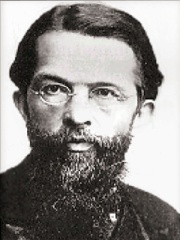
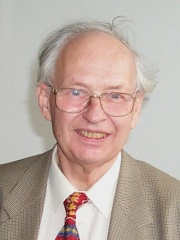
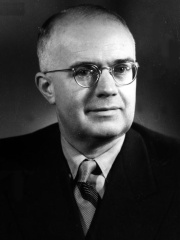
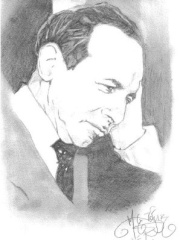
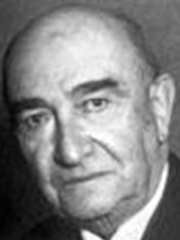
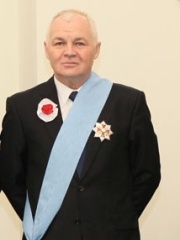
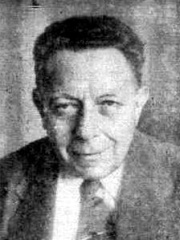
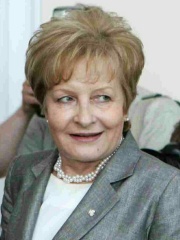
The Most Famous
ECONOMISTS from Poland
This page contains a list of the greatest Polish Economists. The pantheon dataset contains 414 Economists, 10 of which were born in Poland. This makes Poland the birth place of the 7th most number of Economists behind Italy, and Russia.
Top 10
The following people are considered by Pantheon to be the top 10 most legendary Polish Economists of all time. This list of famous Polish Economists is sorted by HPI (Historical Popularity Index), a metric that aggregates information on a biography's online popularity. Visit the rankings page to view the entire list of Polish Economists.

1. Carl Menger (1840 - 1921)
With an HPI of 72.92, Carl Menger is the most famous Polish Economist. His biography has been translated into 46 different languages on wikipedia.
Carl Menger von Wolfensgrün ( MENG-ghər; German: [ˈmɛŋɐ]; 28 February 1840 – 26 February 1921) was an Austrian economist who contributed to the marginal theory of value. Menger is considered the founder of the Austrian school of economics. In building his marginalist approach, Menger rejected many established views of classical economics. He directly disputed the view of the "German school" that economic theory could be derived from history. Departing from the cost-of-production theory of value—the prevailing theory of Adam Smith, David Ricardo, and Karl Marx—Menger's subjective theory of value emphasized role of mutual agreement in deriving prices. Although he had few readers outside Vienna until late in his career, disciples including Eugen von Böhm-Bawerk and Friedrich von Wieser brought his theories into wider readership. Friedrich Hayek wrote that the Austrian school's "fundamental ideas belong fully and wholly to Carl Menger." Menger began his career as a lawyer and business journalist, during which he saw inconsistencies between existing economic theory and how buyers reasoned. After formal training in economics, he taught at the University of Vienna from 1872 to 1903. He became a private tutor and confidant to Rudolf von Habsburg, the crown prince of Austria.

2. Reinhard Selten (1930 - 2016)
With an HPI of 69.92, Reinhard Selten is the 2nd most famous Polish Economist. His biography has been translated into 53 different languages.
Reinhard Justus Reginald Selten (German: [ˈʁaɪnhaʁt ˈzɛltn̩] ; 5 October 1930 – 23 August 2016) was a German economist, who won the 1994 Nobel Memorial Prize in Economic Sciences (shared with John Harsanyi and John Nash). He is also well known for his work in bounded rationality and can be considered one of the founding fathers of experimental economics.

3. Oskar R. Lange (1904 - 1965)
With an HPI of 63.59, Oskar R. Lange is the 3rd most famous Polish Economist. His biography has been translated into 24 different languages.
Oskar Ryszard Lange (Polish: [ˈlanɡɛ]; 27 July 1904 – 2 October 1965) was a Polish economist and diplomat. He is best known for advocating the use of market pricing tools in socialist systems and providing a model of market socialism. He responded to the economic calculation problem proposed by Ludwig von Mises and Friedrich Hayek by claiming that managers in a centrally-planned economy would be able to monitor supply and demand through increases and declines in inventories of goods, and advocated the nationalization of major industries. During his stay in the United States, Lange was an academic teacher and researcher in mathematical economics. Later in socialist Poland, he was a member of the Central Committee of the Polish United Workers' Party.

4. Michał Kalecki (1899 - 1970)
With an HPI of 63.53, Michał Kalecki is the 4th most famous Polish Economist. His biography has been translated into 25 different languages.
Michał Kalecki (Polish: [ˈmixaw kaˈlɛt͡skʲi]; 22 June 1899 – 18 April 1970) was a Polish Marxian economist. Over the course of his life, Kalecki worked at the London School of Economics, University of Cambridge, University of Oxford, and Warsaw School of Economics, and was an economic advisor to the governments of Poland, France, Cuba, Israel, Mexico, and India. He also served as the deputy director of the United Nations Economic Department in New York City. Kalecki has been called "one of the most distinguished economists of the 20th century" and "likely the most original one". It is often claimed that he developed many of the same ideas as John Maynard Keynes before Keynes but remains much less known to the English-speaking world. He offered a synthesis that integrated class analysis of Marxism and the new literature on oligopoly theory, and his work had a significant influence on both the neo-Marxian (Monopoly Capital) and post-Keynesian schools of economic thought. He was one of the first macroeconomists to apply mathematical models and statistical data to economic questions. Being also a political economist and a person of left-wing convictions, Kalecki emphasized the social aspects and consequences of economic policies. Kalecki made major theoretical and practical contributions in the areas of the business cycle, economic growth, full employment, income distribution, the political boom cycle, the oligopolistic economy, and risk. Among his other significant interests were monetary issues, economic development, finance, interest, and inflation. In 1970, Kalecki was nominated for the Nobel Memorial Prize in Economics but died the same year.
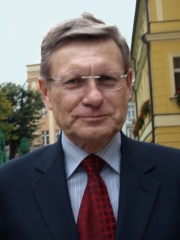
5. Leszek Balcerowicz (b. 1947)
With an HPI of 59.32, Leszek Balcerowicz is the 5th most famous Polish Economist. His biography has been translated into 26 different languages.
Leszek Henryk Balcerowicz (pronounced [ˈlɛʂɛk balt͡sɛˈrɔvit͡ʂ] ; born 19 January 1947) is a Polish economist, statesman, and Professor at Warsaw School of Economics. He served as Chairman of the National Bank of Poland (2001–2007) and twice as Deputy Prime Minister of Poland (1989–1991, 1997–2001). In 1989, he became Minister of Finance in Tadeusz Mazowiecki's first non-communist government and led the free-market economic reforms, proponents of which say they have transformed Poland into one of Europe's fastest growing economies, but which critics say were followed by a large increase in unemployment. In 2007, he founded the Civic Development Forum (Forum Obywatelskiego Rozwoju) think-tank and became the chairman of its council.

6. Leopold von Wiese (1876 - 1969)
With an HPI of 57.73, Leopold von Wiese is the 6th most famous Polish Economist. His biography has been translated into 17 different languages.
Leopold Max Walther von Wiese und Kaiserswaldau (2 December 1876, Glatz, German Empire – 11 January 1969, Cologne, West Germany) was a German sociologist and economist, as well as professor and chairman of the German Sociological Association.

7. Jan Krzysztof Bielecki (b. 1951)
With an HPI of 55.93, Jan Krzysztof Bielecki is the 7th most famous Polish Economist. His biography has been translated into 28 different languages.
Jan Krzysztof Bielecki ['jan ˈkʂɨʂtɔf bʲɛˈlɛt͡skʲi] (born 3 May 1951) is a Polish liberal politician and economist. A leading figure of the Gdańsk-based Liberal Democratic Congress in the early 1990s, Bielecki served as Prime Minister of Poland for most of 1991. In his post-political career, Bielecki served as president of Bank Pekao between 2003 and 2010, and served as the president of the Polish Institute of International Affairs between 2009 and 2015. Since the early 2000s, Bielecki has been a member of the Civic Platform party. In 2010, the Warsaw Business Journal described Bielecki as one of the most respected economists in Poland.

8. Henryk Grossman (1881 - 1950)
With an HPI of 53.99, Henryk Grossman is the 8th most famous Polish Economist. His biography has been translated into 16 different languages.
Henryk Grossman (Polish: [ˈɡrɔsman]; born Chaskel Grossman; 14 April 1881 – 24 November 1950) was a Polish-German Marxist economist, historian, and political activist. Born in Kraków to an assimilated Jewish family, he became a leading figure in the Jewish socialist movement in Galicia before World War I, leading the Jewish Social Democratic Party (JSDP). After the war, he became a member of the Communist Party of Poland. Forced into exile in the mid-1920s due to political persecution, Grossman joined the Institute for Social Research (the Frankfurt School) in Germany. There he published his most famous work, The Law of Accumulation and Breakdown of the Capitalist System (1929), a treatise that revived Karl Marx's theory of economic crisis. In this book, Grossman argued that capitalism has an inherent tendency towards breakdown, stemming from the rising organic composition of capital and the consequent fall in the rate of profit. After fleeing Nazi Germany in 1933, Grossman lived in exile in Paris, London, and New York, continuing his association with the Frankfurt School until a falling out in the 1940s. He remained a committed, though not always orthodox, supporter of the Soviet Union. In 1949, he accepted a professorship at the University of Leipzig in East Germany, where he spent the final year of his life. His work, largely rejected by both social democratic and communist orthodoxy during his lifetime, was rediscovered in the late 1960s and has since become a central text in Marxist crisis theory. His analysis of capitalism's "final breakdown" has been seen by some modern scholars as "stunningly prescient".

9. Zyta Gilowska (1949 - 2016)
With an HPI of 49.98, Zyta Gilowska is the 9th most famous Polish Economist. Her biography has been translated into 16 different languages.
Zyta Janina Gilowska (née: Napolska) [ˈzɨta gʲiˈlɔfska] (7 July 1949 – 5 April 2016) was a Polish economist, academic, and politician.
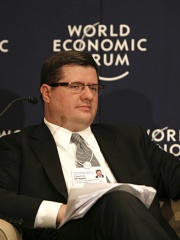
10. Sławomir Skrzypek (1963 - 2010)
With an HPI of 47.81, Sławomir Skrzypek is the 10th most famous Polish Economist. His biography has been translated into 20 different languages.
Sławomir Stanisław Skrzypek (10 May 1963 – 10 April 2010) was the President of the National Bank of Poland (NBP) from 2007 until his death in 2010. He died in the 2010 Polish Air Force Tu-154 crash, when a plane transporting a number of Polish notables, including the President of Poland Lech Kaczyński, crashed en route to a ceremony commemorating the 70th anniversary of the Katyń massacre.
People
Pantheon has 10 people classified as Polish economists born between 1840 and 1963. Of these 10, 2 (20.00%) of them are still alive today. The most famous living Polish economists include Leszek Balcerowicz, and Jan Krzysztof Bielecki. The most famous deceased Polish economists include Carl Menger, Reinhard Selten, and Oskar R. Lange.
Living Polish Economists
Go to all RankingsDeceased Polish Economists
Go to all RankingsCarl Menger
1840 - 1921
HPI: 72.92
Reinhard Selten
1930 - 2016
HPI: 69.92
Oskar R. Lange
1904 - 1965
HPI: 63.59
Michał Kalecki
1899 - 1970
HPI: 63.53
Leopold von Wiese
1876 - 1969
HPI: 57.73
Henryk Grossman
1881 - 1950
HPI: 53.99
Zyta Gilowska
1949 - 2016
HPI: 49.98
Sławomir Skrzypek
1963 - 2010
HPI: 47.81
Overlapping Lives
Which Economists were alive at the same time? This visualization shows the lifespans of the 8 most globally memorable Economists since 1700.

